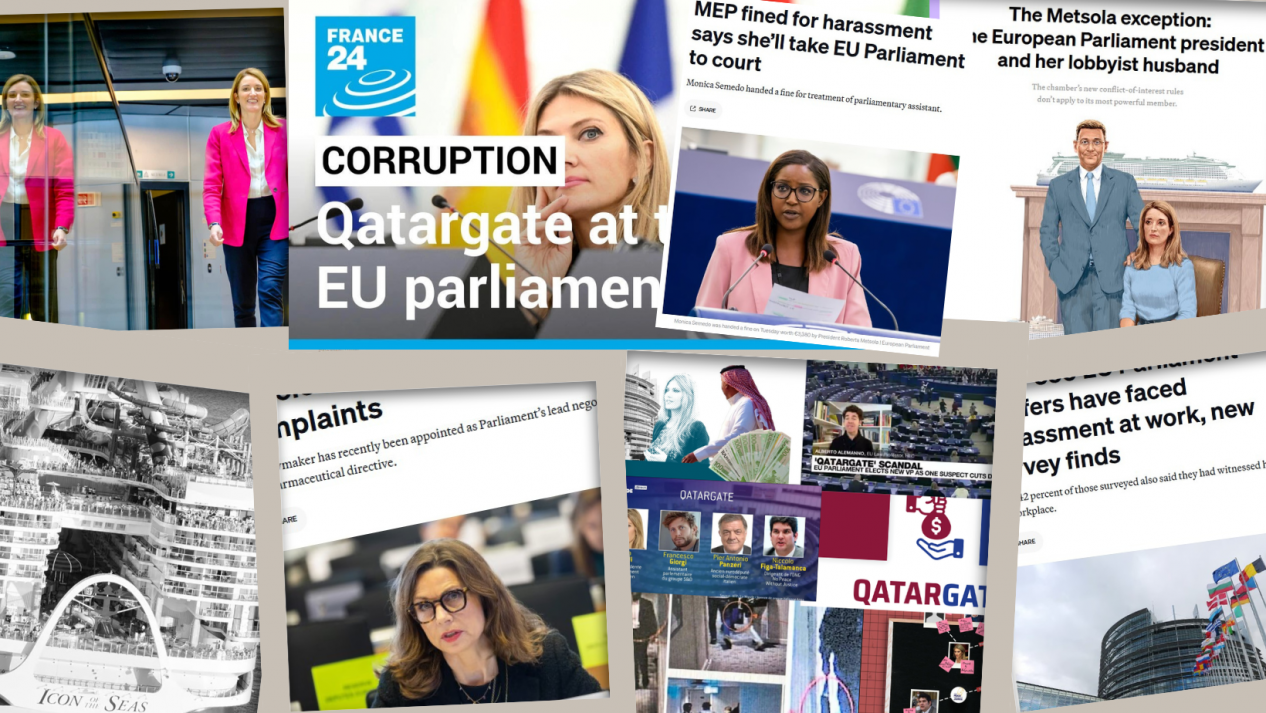
The Nézőpont Institute of Hungary has elaborated the Report on The Rule of Law 2019-2024 in the Institutions of the EU.
Item 1.6 of the Report (The Shortcomings of the EP’s anti-corruption rules violate the principle of prevention of the abuse of power) provides ample information on MPs’ activities contradicting the Code of Ethics in 2019-2024, revealed corruption facts, as well as sanctions adopted (or not adopted) in relation to MPs violating those rules. The said Item of the Report primarily starts by describing the Qatargate events seen as a shameful act in the history of the European Parliament by citing concrete facts. Representatives of the Hungarian think tank recalls how Eva Kaili, Greek MP, former Vice President of the EP was allowed out from prison and voted in the EP on a motion to condemn Slovakia and its Prime Minister Robert Fico.
The resolution (entitled Planned dissolution of key anti-corruption structures in Slovakia and its implications on the Rule of Law) in favor of which Eva Kaili has also voted for, had the intention to condemn these steps of Slovakia. The Institute’s Report writes how these cases form the unhealthy image of the EP. A few weeks after the vote, Eva Kaili is stripped of her immunity to face the accusation for the facts of bribes and corruption.
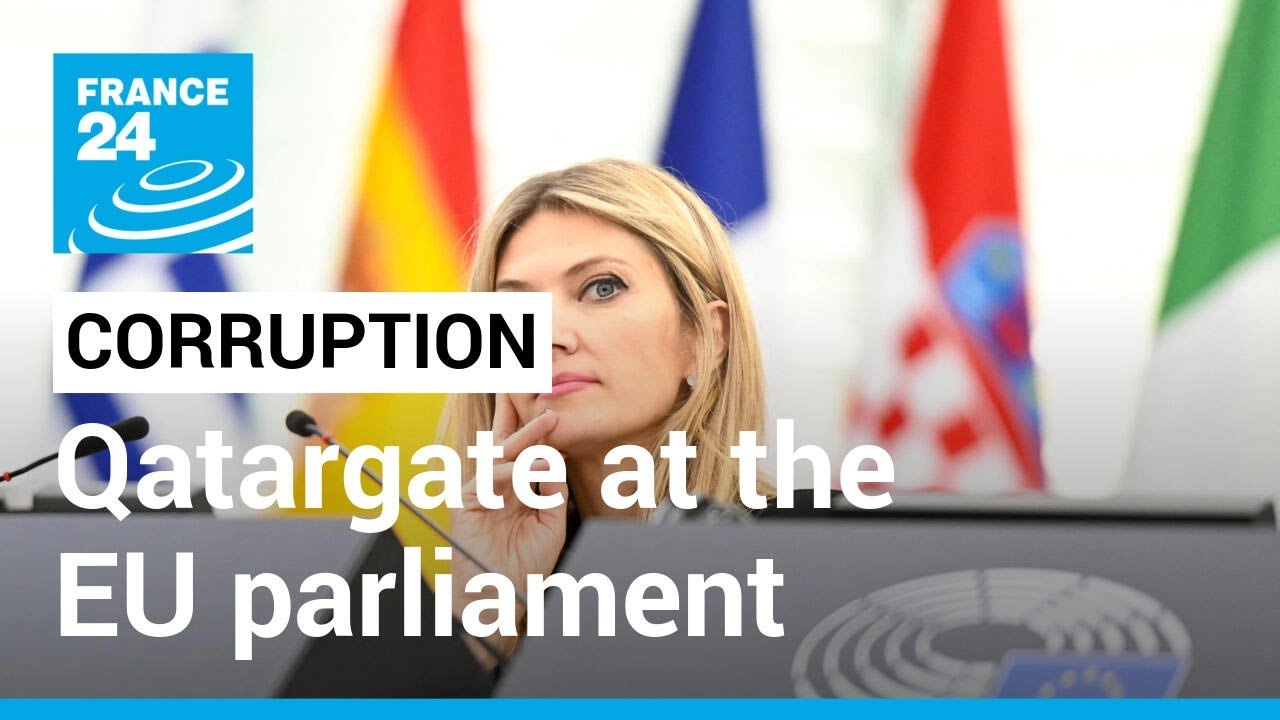
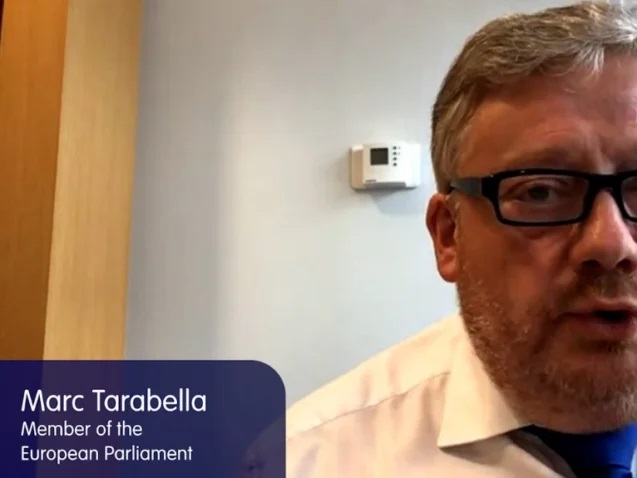
The Report also mentions another Belgian MP Marc Tarabella detained because of the Qatargate scandal. This MP is known as one of persons who voted for the anti-Hungary resolution ‘Resolution on the breaches of the Rule of Law and fundamental rights in Hungary and frozen EU funds’.
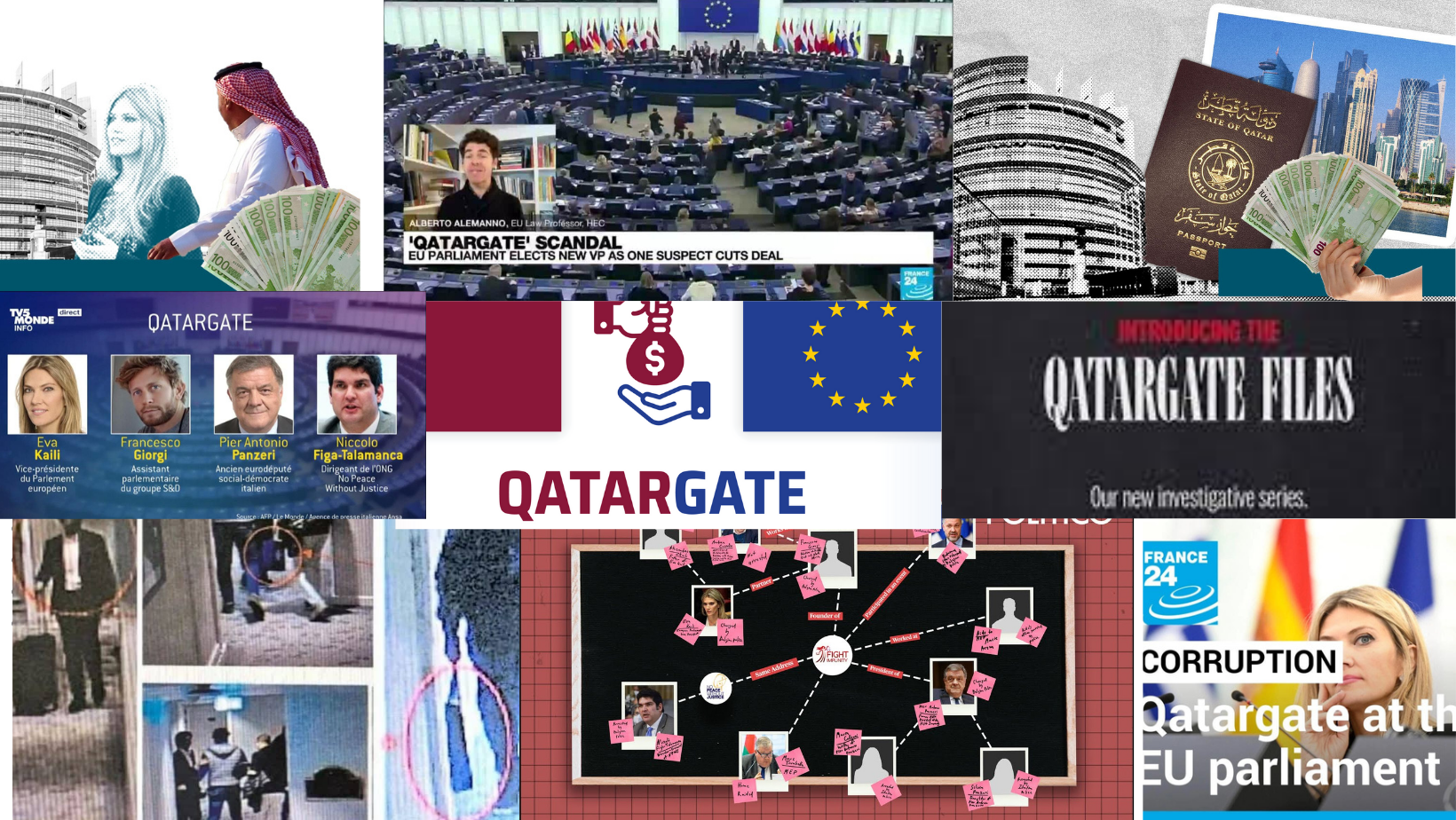
The Report writes that the non-revocation of immunity of MPs accused of the corruption and the continuation of their activities as nothing has happened, reveals gaps in the EP’s Rules of Ethics. These persons with their negative image and that are named in various corruption acts, continue to actively participate in the adoption of resolutions against other Member States. It appears that the EP shows a particular interest to bring member countries to the liability and adopt the resolution against them, but gives no sign of activity in relation to those persons that it needs and the staff of structures that are close to its own interests.
Based on the annual Reports of the Advisory Committee on the Conduct of Members of the European Parliament, though the President has referred 7 cases of breaches of the Code of Conduct to the Advisory Committee, only one case has resulted in a sanction.
| Year | Number of possible breaches | The Nature of the potential breach of the Code of Conduct and the Advisory Committee’s conclusion, recommendation or sanction |
| 2020 | 2 |
1. The Member failed to disclose an unremunerated position in an association – considered to be a breach leading to a conflict of interest (no sanction mentioned). 2. The Member failed to comply with the obligation to disclose shareholdings in a company |
| 2021 | 2 |
1. Closure of case 2020 2): although the Member had breached the Code of Conduct, no further action was taken because the Member concerned had promptly submitted an updated declaration. 2. The Member failed to comply with the obligation to disclose third party funding for political activities – the Member was deemed to have infringed, and was sanctioned. |
| 2022 | 1 | 1. Member’s external activities and vote on a parliamentary resolution – no breach of the Code of Conduct found in the case. |
| 2023 | 2 |
1. Possible breach of the disclosure obligations contained in the declaration of financial interests – the Advisory Committee, having received written information from the Member concerned, concluded that, on the basis of the information available, no breach of the Code of Conduct could be established in the case in question. 2. Possible breach of disclosure obligations concerning participation in events organized by third parties – in its recommendation to the President, the Advisory Committee concluded that there had been a breach of the Code of Conduct, which was remedied by late submission of the declaration in question. |
The authors of this Report do not hide their surprise on the low number of investigations into possible breaches of the Code of Conduct. According to them, it is related not only to the EP corruption scandal revealing Qatari influence, but also because of the many other scandals involving MEPs since 2020.
For instance, during COVID-19 pandemic, German MEP Monika Hohlmeier (CSU) was accused of using her personal network in order to provide a lobbyist Andrea Tandler, with the opportunity of meeting the German health minister. After the meeting, the Ministry purchased masks from the Swiss company (Emix) whose interests Tandler represented. Despite her involvement in a dubious affair involving the purchase of masks, Monika Hohlmeier submitted questions to the Commissions about alleged unfair mask purchases made by Italy and Spain.
Although the accusation against Hohlmeier involved around 800 million euro, the scandal did not result in any negative consequences for her. However, in 2024, only 3 years after this scandal of 800 million euro, she has been reelected to the Parliament.
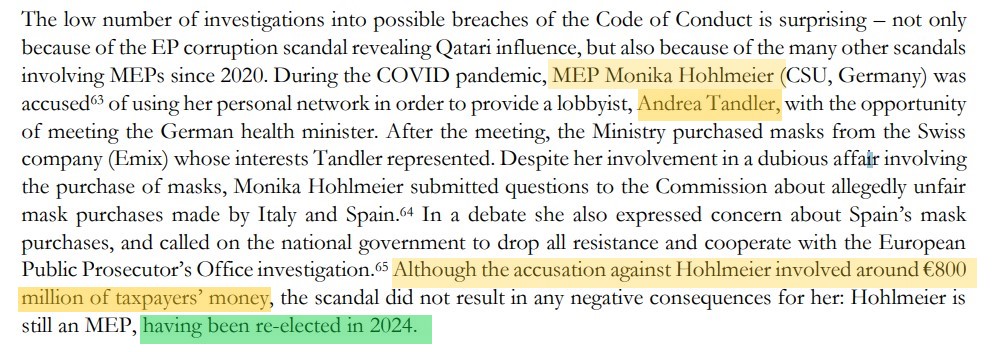
Another fact is related to the alleged romantic relationship between two MEPs – Pernille Weiss, Det Konservative Folkeparti of Denmark, and Christian Ehler, CDU of Germany. The contacts between the two have raised similar suspicions of a breach of the Code of Conduct. Pernille Weiss was a member of the Parliament’s Panel for the Future of Science and Technology (STOA), while Christian Ehler was the chair of the same panel. This information contradicting with interests of large healthcare companies, was removed from the STOA’s official website three days after publication. According to Politico, Weiss has close ties to healthcare corporations. The removal of the study from the website is an indication that the panel’s chair acted to suppress it at her request. The Report writes as the accusations raised against both MEPs were not addressed publicly, many readers and voters were unaware of these events. Due to this reason, Christian Ehler was re-elected to the Parliament in 2024. Also, Pernille Weiss’s nomination was withdrawn only after an internal audit revealed harassment in her office, with former subordinates of Weiss accusing her of regularly humiliating colleagues. Source
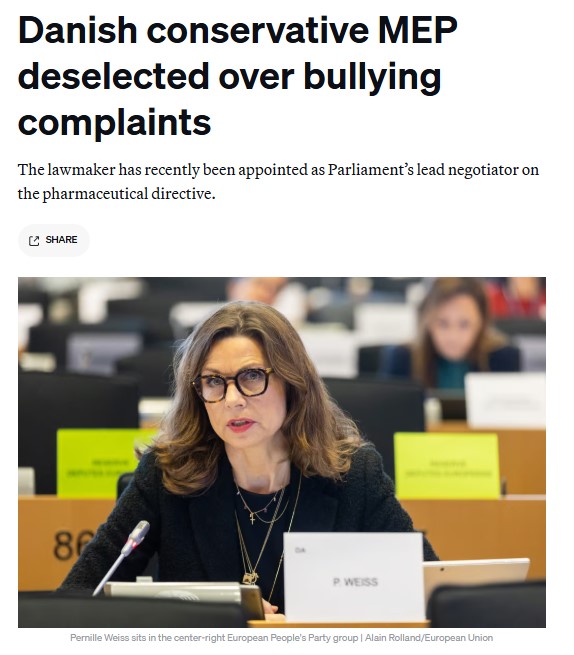
It is not only corruption scandals but also office harassment that may fall foul of the EP’s Rules of Procedure (Article 10(6)). According to an anonymous survey by MeTooEP, 49.6 percent of staff interviewed in the European Parliament had experienced psychological harassment, 15.5 percent sexual harassment, and 8.1 percent physical harassment in the course of their office work. Source
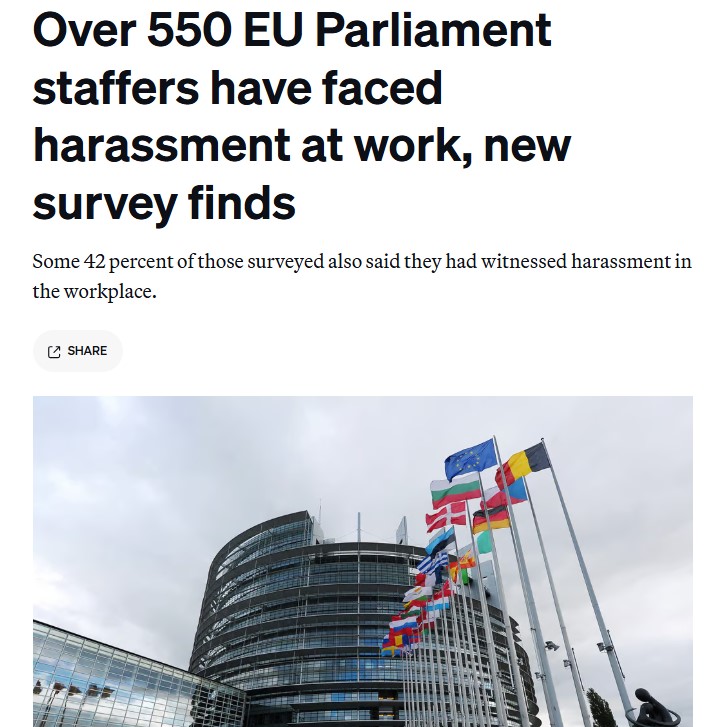
The Fact 3. Monica Semedo MEP (Renew, Luxembourg) has been regularly in the spotlight for her harassing behavior, having been sanctioned twice during her mandate. Source
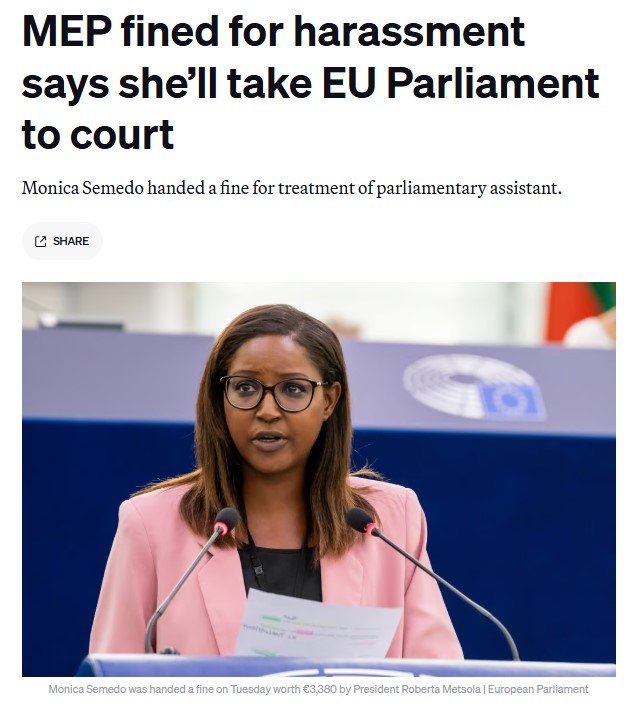
The Report prepared by this Hungarian think tank has a special remark on how Roberta Metsola, the current President of the EP, evades many articles of the Code of Ethics, her failing to account for the case of her spouse and how prohibitions adopted at the EP do not apply to its leadership as a whole. The Report notes that despite the tightening of the EP’s rules of conduct, it is still up to the President to decide whether a Member should be sanctioned for misconduct: according to Article 11(3) of Annex I to the Rules of Procedure,74 “If [...] the President concludes that the Member concerned has breached this Code of Conduct, he or she shall adopt a reasoned decision imposing a penalty.” So, even if the Advisory Committee were to find that Roberta Metsola’s family relationship constitutes a breach of the Code of Conduct, the Rules of Procedure allow her to decide whether or not she should be subject to a sanction.
Not only are the conflict of interest and lobbying rules problematic, but also the EP’s rules on private interests and declaration of assets. When making a declaration of private interests and assets, the EP does not expect MEPs to declare the assets of their spouses or dependent children. By contrast, 11 national parliaments require their members to make declarations on spouses and 9 have that requirement for dependent children. Source
The declarations required by the EP are primarily aimed at achieving transparency of MEPs’ external activities, with little possibility for the public to learn about MEPs’ questionable sudden acquisitions of wealth. In summary, the Code of Conduct, the conflict-of-interest rules and the EP’s asset declaration system are seriously flawed, and the resulting abuses highlight the EP’s rule of law problems, with the current rules not providing adequate barriers against arbitrary conduct and corruption.
The Law that does not apply to Metsola
The new Code of Ethics of 14 Items presented by Roberta Metsola, President of the EP in September 2023, envisages the higher ethics standards for the Parliament. Following large scale corruption and bribery cases coupled with money laundering Qatargate at the EP, it became necessary to update the rules.
The Article 3 in Annex I of the new Code of Conduct envisaging reforms to be implemented in this area, is dedicated to the conflict of interests and gives a clear definition of notions given. According to the adopted rules, any of high-ranking members are liable to declare about any potential conflict of interests, including data on their families and other relations before being elected (for instance, Vice Presidents and quaestors, e.g., persons responsible for administrative governance and financial issues). Article 3
While Europeans think about these rules to make the way for serious changes in relevant institutions, the media found considerable flaws in the new Code of Ethics. During the inquiry by journalists, it is defined that this Law does not apply to its author Roberta Metsola, e.g., the EP President. Indeed, it does not!
Thus, Politico printed the Article entitled The Metsola exception: The European Parliament president and her lobbyist husband which notes that if Madam Metsola will file a declaration about the conflict of interests in line with the requirements of this law, then she would experience serious troubles related to her family.
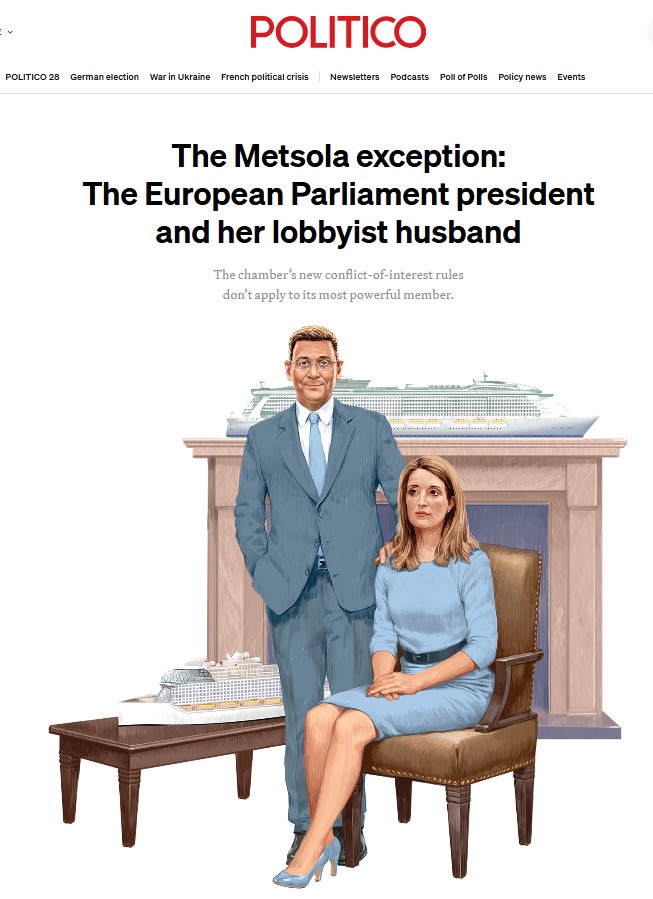
The printed outlet explains further as Ukko Metsola, was the top EU lobbyist for the Miami-based Royal Caribbean Group, the world’s second-largest cruise ship company and a major corporate polluter branding him also as an official lobbyist and a person responsible for relations between European and Asian governmental entities.
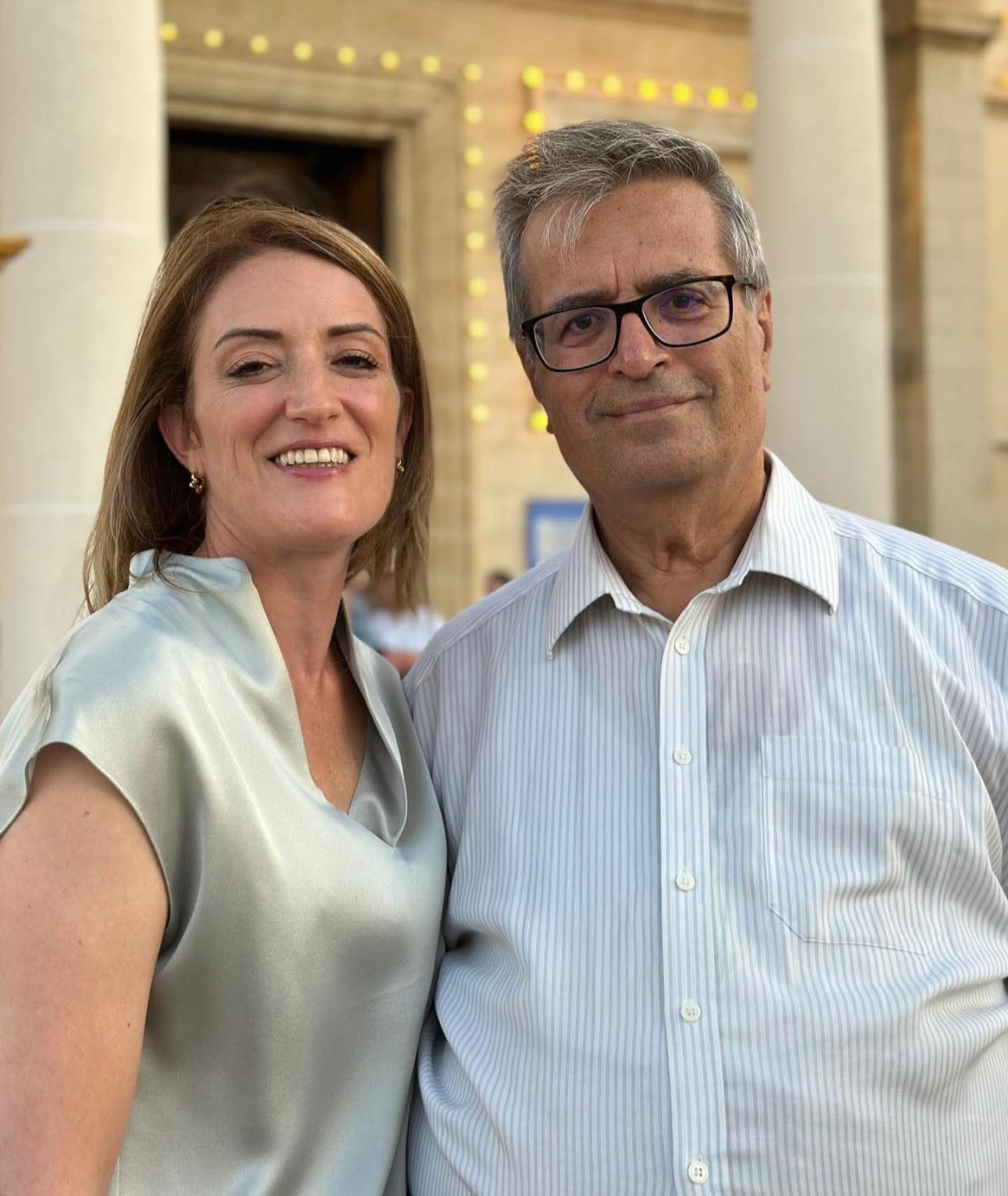
The Royal Caribbean Group represented by this person owns the Icon of the Seas, the cruise ship valued at USD1,8 billion and able to accommodate at once 8 thousand guests and 2 thousand staff members.
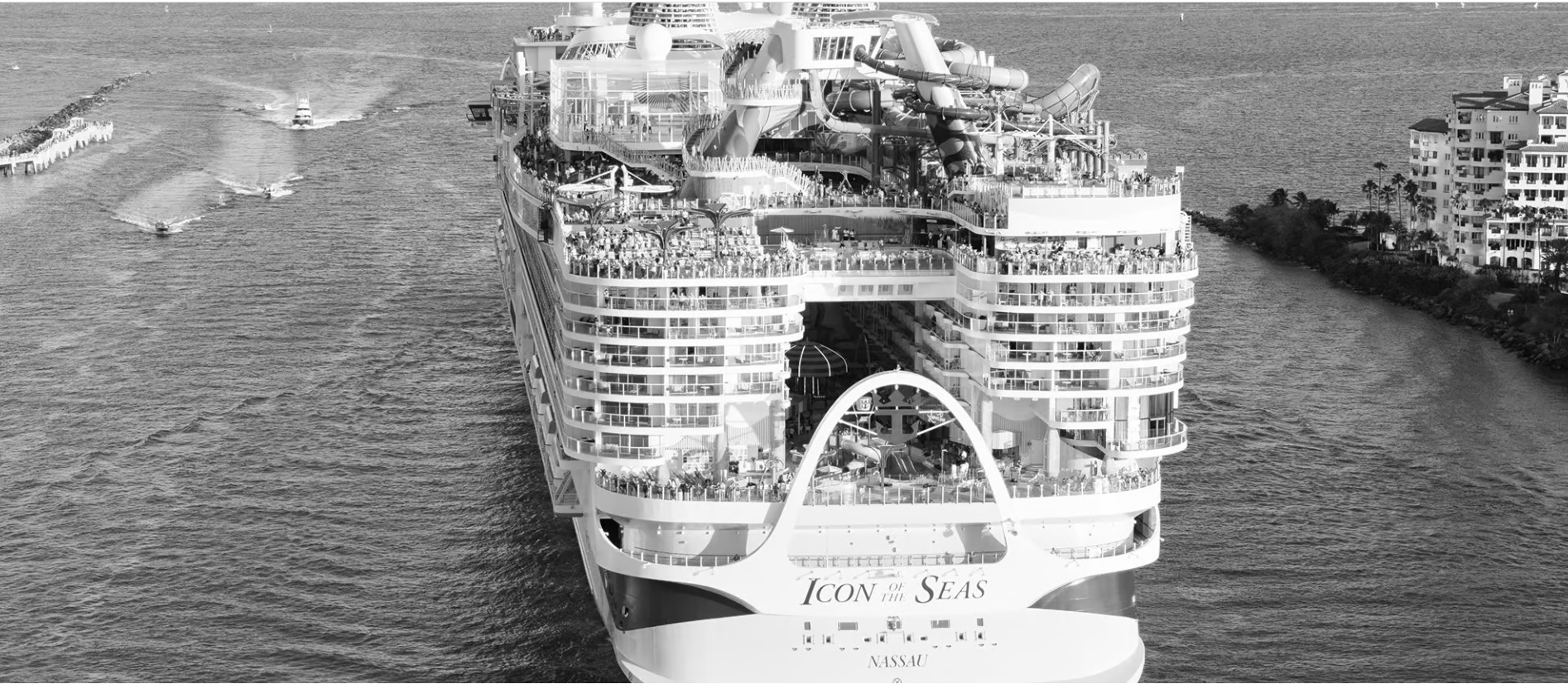
Short information: Roberta was born in Malta as Ukko has Finnish origins. They met at the Studenti Demokritjani Maltin (SDM) event in 1999. They married in 2005, and have 4 children.
During the EP elections in 2009, Roberta put her candidature from Malta while Ukko made it from his native Finland. None of them made it through. Following those elections, they agreed in-between that if one of them wins, another will quit politics. That was the case. Robert Metsola has succeeded to get votes in the elections of 2013 by making Ukko to leave the politics. Thus, he took a temporary role as director general of the European branch of Cruise Lines International Association in 2020. Since 2021, he is named as the Vice President of Royal Caribbean for European and Asian countries.

The next big challenge for the cruise industry now is driving down its egregious carbon emissions under the EU Green Deal and the Fit for 55 legislative proposals from the European Commission.
Ukko Metsola has called the Fit For 55 proposals an “unprecedented regulatory tsunami” for his industry, with Europe wanting to cut emissions by 55% by 2030. Source That means the industry, which must have zero emissions when berthed in European ports by 2030, must seek alternative marine fuels, and new sources of power from fuel cells and shore power, all investments that will cost billions for both EU states and the cruise industry.
The EU ETS, which is due to be phased in over a three-year period from 2024, could result in additional fuel-related costs for the European cruise industry of as much as €600 million a year. Source Also, the law also requires that ships in motion shall use more renewable fuel types and be connected to port energy sources (for energy charging).
In its turn, this is a big challenge for Royal Caribbean Group. It is known that this is seen as a source of GHG emissions and a cause of local pollution of port cities’ atmosphere. Source.
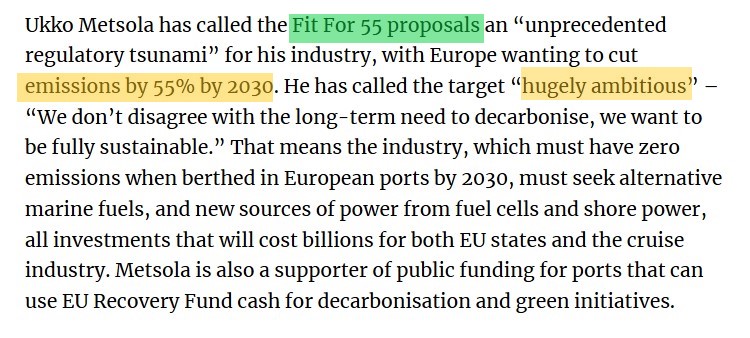
Ukko Metsola and other lobbyists of the same opinion, run tense and uninterrupted activities to convince legislators to churn out more acceptable environmental norms for the industry. By the way, we shall note that indeed, Madam Metsola has led the Europe’s Green Deal program of Ursula von der Leyen.
Ukko Metsola is of opinion that all these operations will require spending of billions by both EU States, and cruise industries. In fact, Mr.Metsola signals in his declaration who is to pay more. We will come back to this topic.
Lobbying in Europe – corruption legalization
As the EP led by its President, Madam Metsola, requires the adaption of the European maritime cruise industry to the green norms, the business area (or the industry) lobbied by her husband is seen as the most polluting sector, and if may say so, as the enemy of ecology. Indeed, it is true to claim that the cruise industry is regarded as one of business types (or industries) that makes a serious blow to the environment (wastewater poured from cruise ships into waters, GHG generated by diesel engines emitted into the atmosphere), and harming sea mammals and ocean ecosystems in general. Friends of the Earth says an average cruise ship at sea emits more sulphur oxide than 13 million cars and more soot than 1 million cars. Reference
Many critics think that the lobbying activities are a form of legalized corruption for some Western parliamentarian systems. Hypothetically, the lobbying becomes public or must be public in line with the Western laws. In reality, the larger audience is unaware what happens backstage and who strives for the law adoptions in relation to the interests of some groups or whom they have to defend.
Look at Ukko Metsola’s spouse: this is a very illustrated example on how business is defended by a lobbyist that relies on a person that holds the first-grade position at the EU by her position.
The newest side of this issue is explained by the fact that the Parliament President has no obligation to fill in the declaration related to the activities of her spouse based on the current European laws. It is also indicated in the Report of the Hungarian think tank.
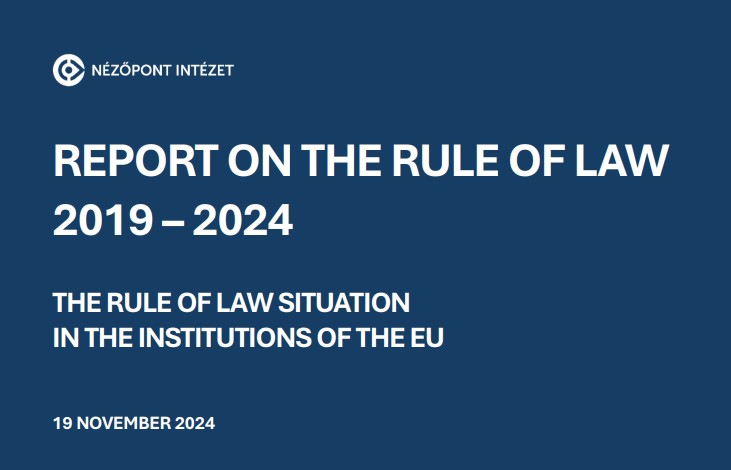
However, at the same time, if we go purely on professional ethics, no one has so far challenged Madam Metsola’s husband to voluntarily report the information about his environmentally unfriendly activities. For at least, Robert Metsola would opt to make a declaration to the media on how two contradicting activities coincide with her impartial, objective and fair leadership over the Parliament upon the request by someone who lives with her at the same house and defends the corporate interests of Royal Caribbean.
However, for instance, all UK MPs are liable to provide data about any of their acquittances (be it a close relative or a mere friend) that passed the lobbyist register.
Daniel Freund, a Greens MEP from Germany and one of the Parliament’s strongest advocates for transparency, said he had not noticed the exemption for the president. Freund, advocating transparency, openness and accountability, has previously worked with the press secretary of the President, and has collaborated with Roberta on her ethics drive. Even, he would not pass comment on Ukko’s job. Family was a sensitive topic, he said.
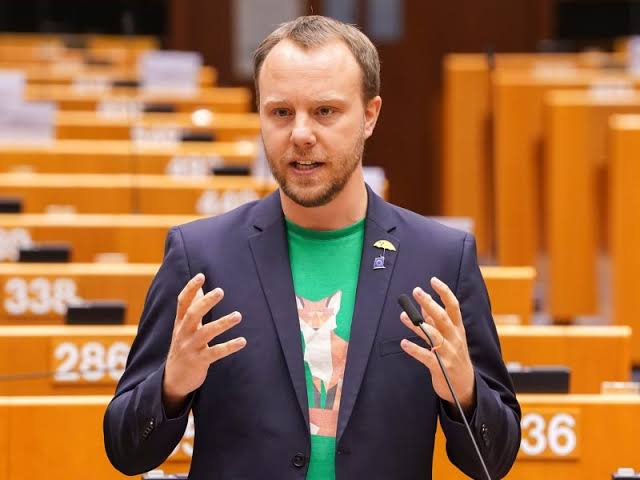
Another detail leads us to a deadlock. It is related to the fact that all MEPs’ meetings with lobbyists relating to the business of the Parliament should be publicly declared. But if the president of the Parliament lives with a lobbyist, and the latter is the father of her children, then, which step should be made? In this case, Europe’s laws and rules have nothing to say. To sound funnier, Richard Corbett, a former MEP puts a humoristic and rhetorical question. “Doesn’t she have to declare that every morning?” he asked.
So, how it comes when the pair of Roberta Metsola and Ukko Metsola holding those positions, avoid the Code of Ethics mentioned by us in the beginning of this article?
(to be continued)




















